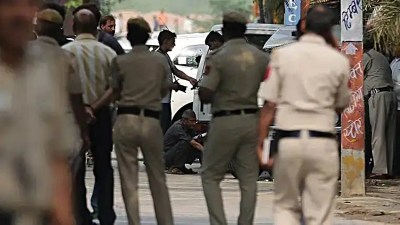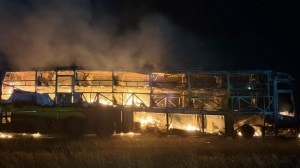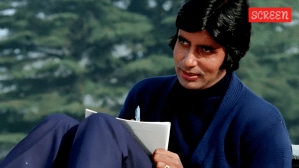For book, Bush looks at life after White House
When President Bush is asked what he plans to do when he leaves office, he often replies curtly: “I don’t have that much time to think beyond my presidency”...

When President Bush is asked what he plans to do when he leaves office, he often replies curtly: “I don’t have that much time to think beyond my presidency” or “I’m going to sprint to the finish.”
But in an interview with a book author in the Oval Office one day last December, he daydreamed about the next phase of his life, when his time will be his own.
First, Bush said, “I’ll give some speeches, just to replenish the ol’ coffers.” With assets that have been estimated as high as nearly $21 million, Bush added, “I don’t know what my dad gets—it’s more than 50-75” thousand dollars a speech, and “Clinton’s making a lot of money.”
Then he said, “We’ll have a nice place in Dallas,” where he will be running what he called “a fantastic Freedom Institute” promoting democracy around the world. But he added, “I can just envision getting in the car, getting bored, going down to the ranch.”
For now, though, Bush told the author, Robert Draper, in a later session, “I’m playing for October-November.” That is when he hopes the Iraq troop increase will finally show enough results to help him achieve the central goal of his remaining time in office: “To get us in a position where the presidential candidates will be comfortable about sustaining a presence,” and, he said later, “stay longer.”
But fully aware of his standing in opinion polls, Bush said his top commander in Iraq, Gen David H Petraeus, would perhaps do a better job selling progress to the American people than he could.
In his nearly seven years as president, Bush has rarely let his guard down with journalists to reveal much of his personal side. But over the course of six roughly hourlong interviews with Draper, Bush shared his inner life at the White House. He at times mused philosophically and introspectively, and at others spoke forcefully about his confidence in his own decisions.
Draper agreed to share parts of his transcripts from those interviews, and the book itself, with The New York Times under the agreement that they would not be published until shortly before the book, Dead Certain (Free Press), is officially released on Tuesday.
The transcripts and the book show Bush as being keenly interested in what history will say about his term despite his frequent comments to the contrary; as being in a reflective mode as his time at 1600 Pennsylvania Avenue dwindles; and, ultimately, as being at once sorrowful and optimistic but virtually alone as commander in chief, and aware of it.
Aides said Bush agreed to speak so freely with Draper only after years of lobbying, in which Draper said he finally convinced Bush and his aides that he was writing about him as “a consequential president” for history, not for the latest news cycle. And aides said they saw the book as the first effort to write about Bush in the context of nearly his entire presidency.



- 01
- 02
- 03
- 04
- 05



























